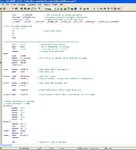uncrocks
Newbie level 6
Conditional Power Control Help
Let me start off by saying that I really don't know much about microelectronics, but i know the basics. I'm decent programming wise, but I need help with one thing.
I need a PIC (or other MCU?) to control power to a Raspberry Pi I'm going to hook up in my car. I plan on powering the Pi through the always on circuit of the car, but having the MCU detect when the engine is actually started, then wait 5 seconds, then activate a relay to power up the Pi, then once the engine turns off, it needs to wait 5 minutes, then send a signal to the Pi telling it to shutdown (just one pin needs to go - to + or vice verca), before waiting a final 2 minutes before deactivating the relay for the Pi.
I figure an MCU would make the most sense, but I could be completely wrong, any help/advice is greatly appreciated!
@moderators - thanks for moving this to the correct forum!
Let me start off by saying that I really don't know much about microelectronics, but i know the basics. I'm decent programming wise, but I need help with one thing.
I need a PIC (or other MCU?) to control power to a Raspberry Pi I'm going to hook up in my car. I plan on powering the Pi through the always on circuit of the car, but having the MCU detect when the engine is actually started, then wait 5 seconds, then activate a relay to power up the Pi, then once the engine turns off, it needs to wait 5 minutes, then send a signal to the Pi telling it to shutdown (just one pin needs to go - to + or vice verca), before waiting a final 2 minutes before deactivating the relay for the Pi.
I figure an MCU would make the most sense, but I could be completely wrong, any help/advice is greatly appreciated!
@moderators - thanks for moving this to the correct forum!
Last edited:
